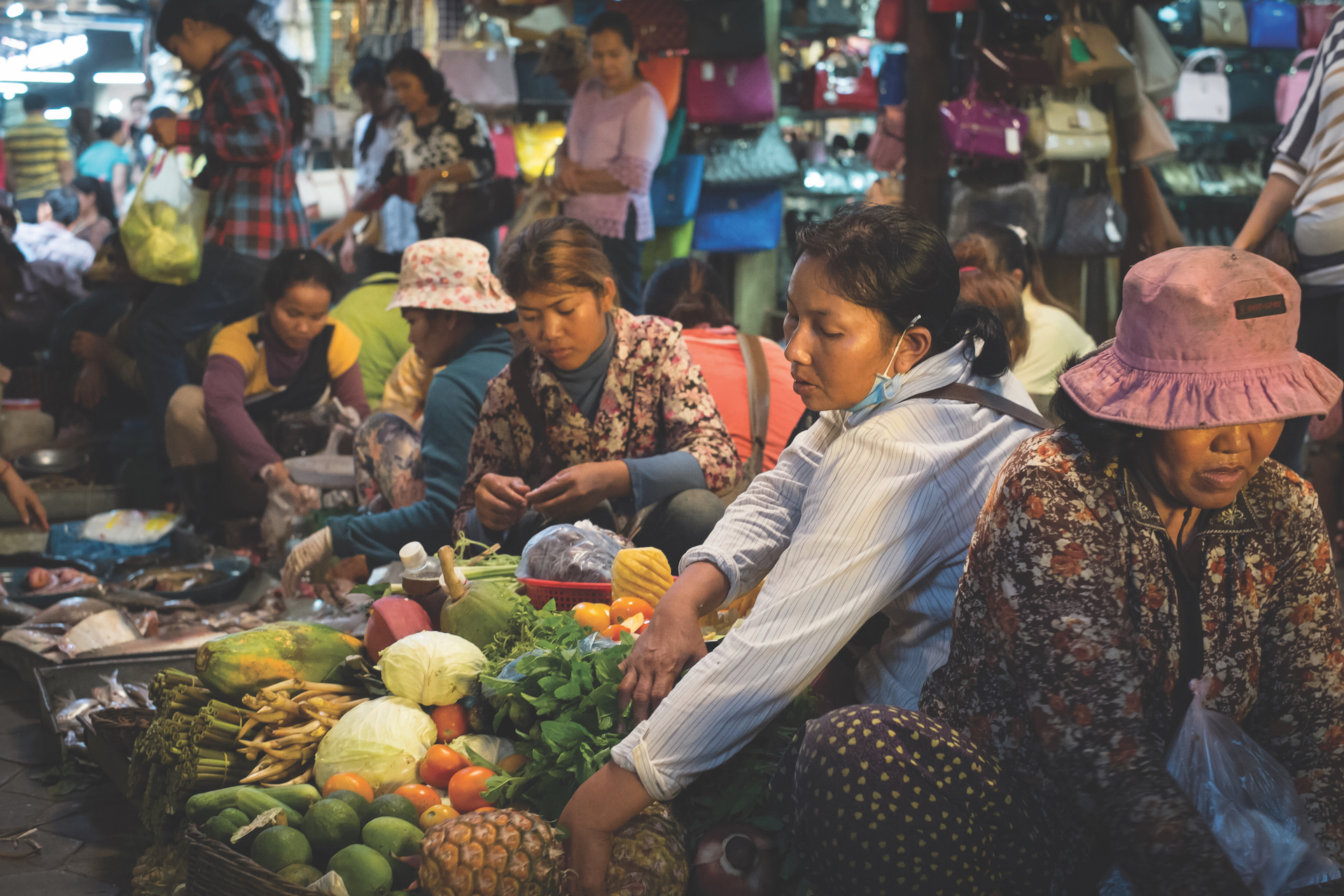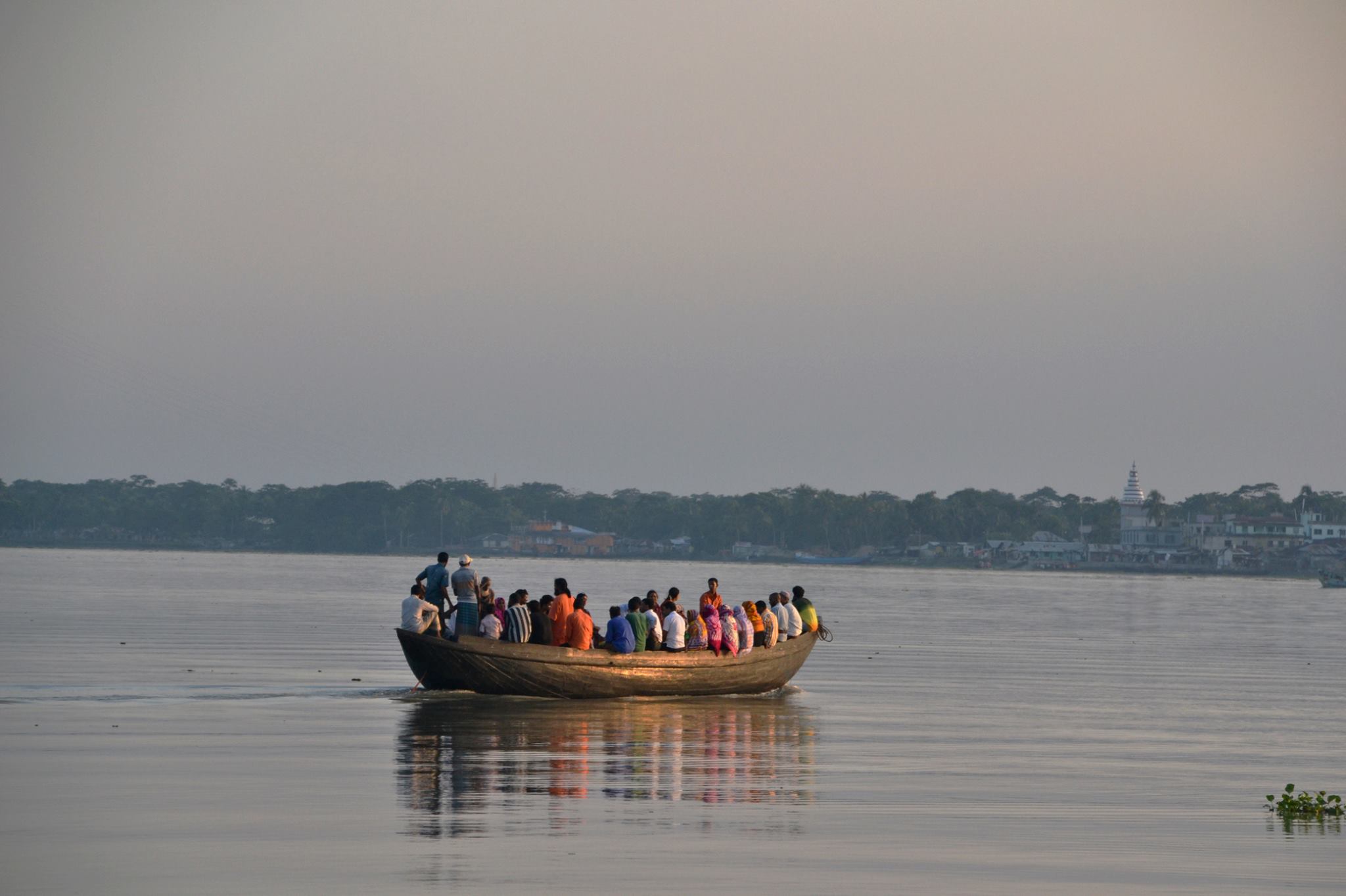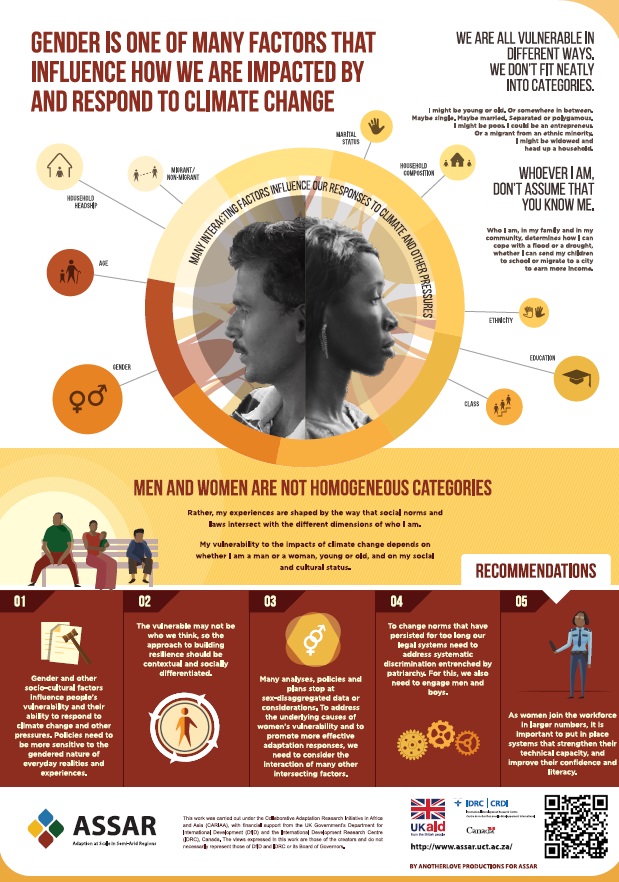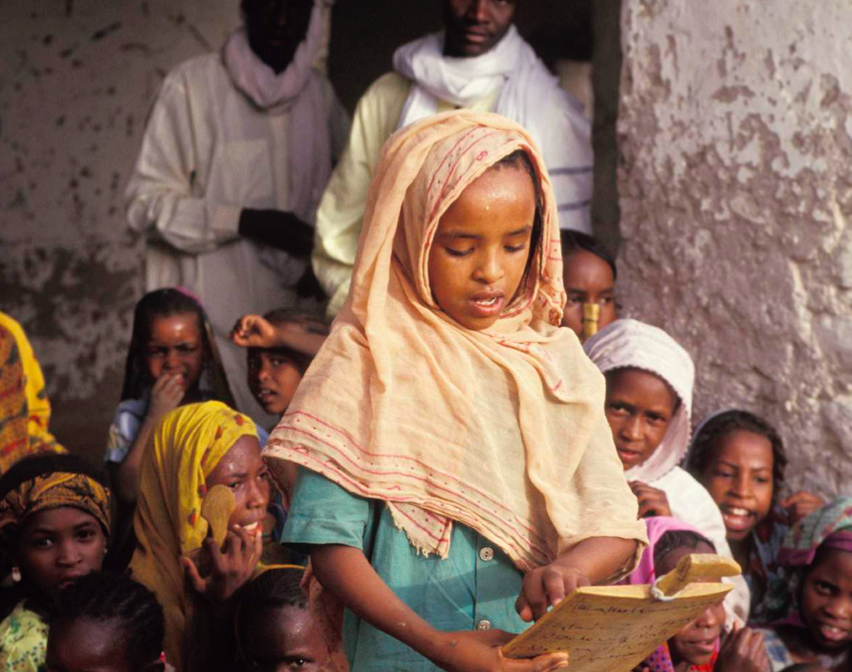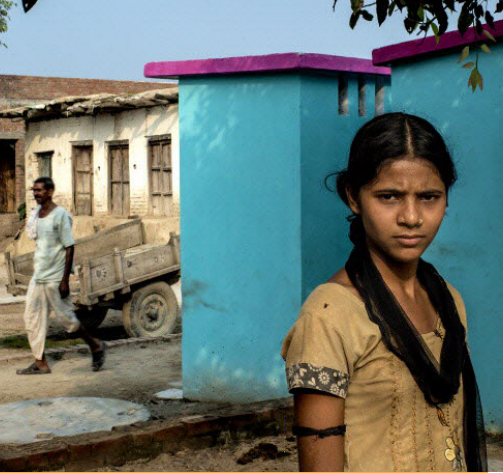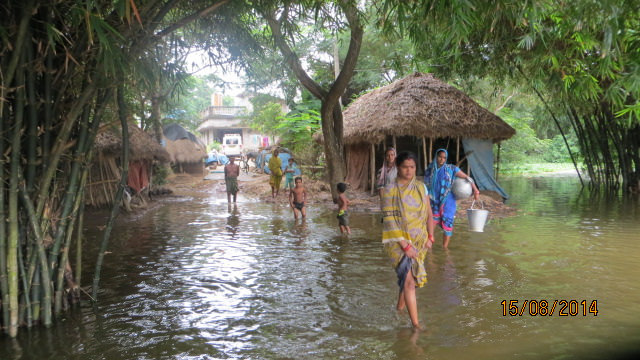Gender & Social Differentiation
Guide to Strengthening Gender Integration in Climate Finance Projects
CDKN and WEDO's guide presents a framework of recommendations for strengthening gender integration in climate finance projects, with concrete examples and resources to show how it can be done.
When the disaster strikes: Gendered (im)mobility in Bangladesh
This study investigates gendered (im)mobility during cyclone strikes in Bangladesh, using the Q-based Discourse Analysis to show how and why gender-roles (im)mobilised people.
Gender Infographics: Showing how gender influences responses to risk
How people experience and respond to risk varies, depending on factors like age, ethnicity, gender and class. These stunning infographics offer an easy-to-understand overview.
Building resilience and ending violence against women and girls: Experiences in Chad
This BRACED report explores why addressing violence against women and girls matters for development programmes that aim to build people’s resilience, particularly in fragile contexts such as Chad.
Gender approaches in climate compatible development: Lessons from urban India
This study explores the advantages and challenges of integrating gender dimensions into climate compatible development strategies through looking at a case study in Gorakhpur, India.
Looking upstream: enhancers of child nutritional status in post-flood rural settings
This article explores the role of education in reducing the societal impacts of extreme flood events, particularly with regards to post-flood child undernutrition.
